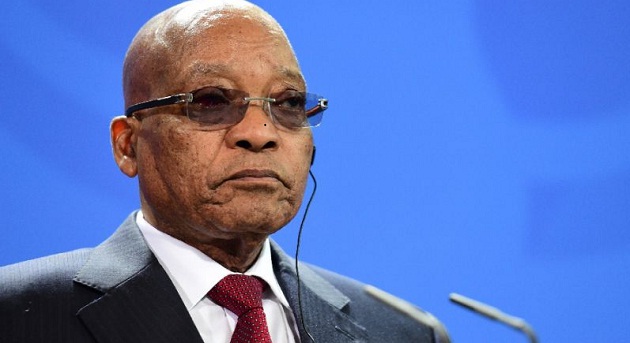
Johannesburg, South Africa | AFP | South Africa’s ruling ANC party met behind closed doors Wednesday as pressure grew on President Jacob Zuma to step down ahead of elections next year when the party risks losing power.
Zuma was replaced as party leader by his deputy Cyril Ramaphosa in December, and analysts predict Ramaphosa faces an uphill task to recover public support ahead of the 2019 vote.
Zuma’s future was not on the official agenda at the ANC national executive committee meeting in the port city of East London, but the party is engulfed in a struggle over when he should leave office.
Many ANC supporters want Zuma to resign and Ramaphosa to become president immediately to bring an end to a rule tainted by graft scandals and economic decline.
“We have foreseen Zuma’s political downfall on many occasions and he has survived against all odds, however this is time the net is closing,” Susan Booysen, politics professor at Wits University in Johannesburg, told AFP.
Zuma’s closest allies still hold senior positions in the party, and he could in theory remain president until the 2019 election that marks the end of his second and final term in office.
But he faces multiple court cases and the threat of criminal prosecution over 783 allegedly corrupt payments he received over an arms deal before he came to power.
– Zuma’s power fades away –
Zuma was also weakened when his chosen successor — his former wife Nkosazana Dlamini-Zuma — lost out to Ramaphosa in the closely-fought race to be party leader.
“Power is turning against Zuma. On previous occasions, he could count on the support of the ANC,” said Booysen. “He can no longer do that.”
Zuma on Tuesday announced a probe into corruption at the highest levels of the state, in apparent attempt to buy time.
In 2016 a damning report questioned his dealings with the wealthy Gupta family, who allegedly were granted favourable government contracts and even allowed to chose ministers.
With Zuma still the president but Ramaphosa leading the ANC, the two factions within the party could be set for a damaging clash in the coming weeks.
“There are no two centres of power. There is only one centre, and that is the African National Congress,” party secretary-general Ace Magashule told reporters outside Wednesday’s meeting, denying any friction.
Zuma, 75, could leave office either by resigning, through losing a motion of no-confidence in parliament or impeachment proceedings.
He could also be recalled by the ANC, forcing him to step down.
Whoever is president will deliver the annual state of the nation address on February 8 — providing one deadline for political manoeuvering.
– Pressure ‘doubling’ –
South African lawmakers on Wednesday said they would prepare new draft regulations on the procedure for removing a president.
The country’s top court last month found that parliament had failed to hold Zuma to account over public funds spent on his private home, and it ordered lawmakers to draw up new rules.
“Developments are coming together and culminating in doubling pressure on Zuma,” Colette Schulz-Herzenberg, politics lecturer at Stellenbosch University, told AFP.
“The party has lost significant support and that is of real concern… but Zuma has managed to side-step numerous attacks and critics before.”
Ramaphosa, 65, will deliver his first major address to the party at a rally on Saturday in East London marking the ANC’s 106th anniversary celebrations.
He is a former trade unionist who led talks to end white-minority rule in the early 1990s and then became a multi-millionaire businessman before returning to politics.
The ANC, which has ruled since 1994 when Nelson Mandela won the first multi-racial election, recorded its worst-ever results in 2016 local polls.
Much of the public frustration at the party has focused on soaring unemployment and state corruption as millions endure dire housing, inadequate education and continuing racial inequality.
 The Independent Uganda: You get the Truth we Pay the Price
The Independent Uganda: You get the Truth we Pay the Price





